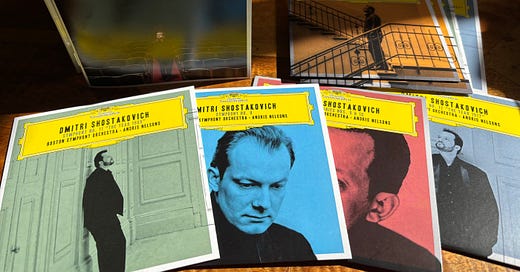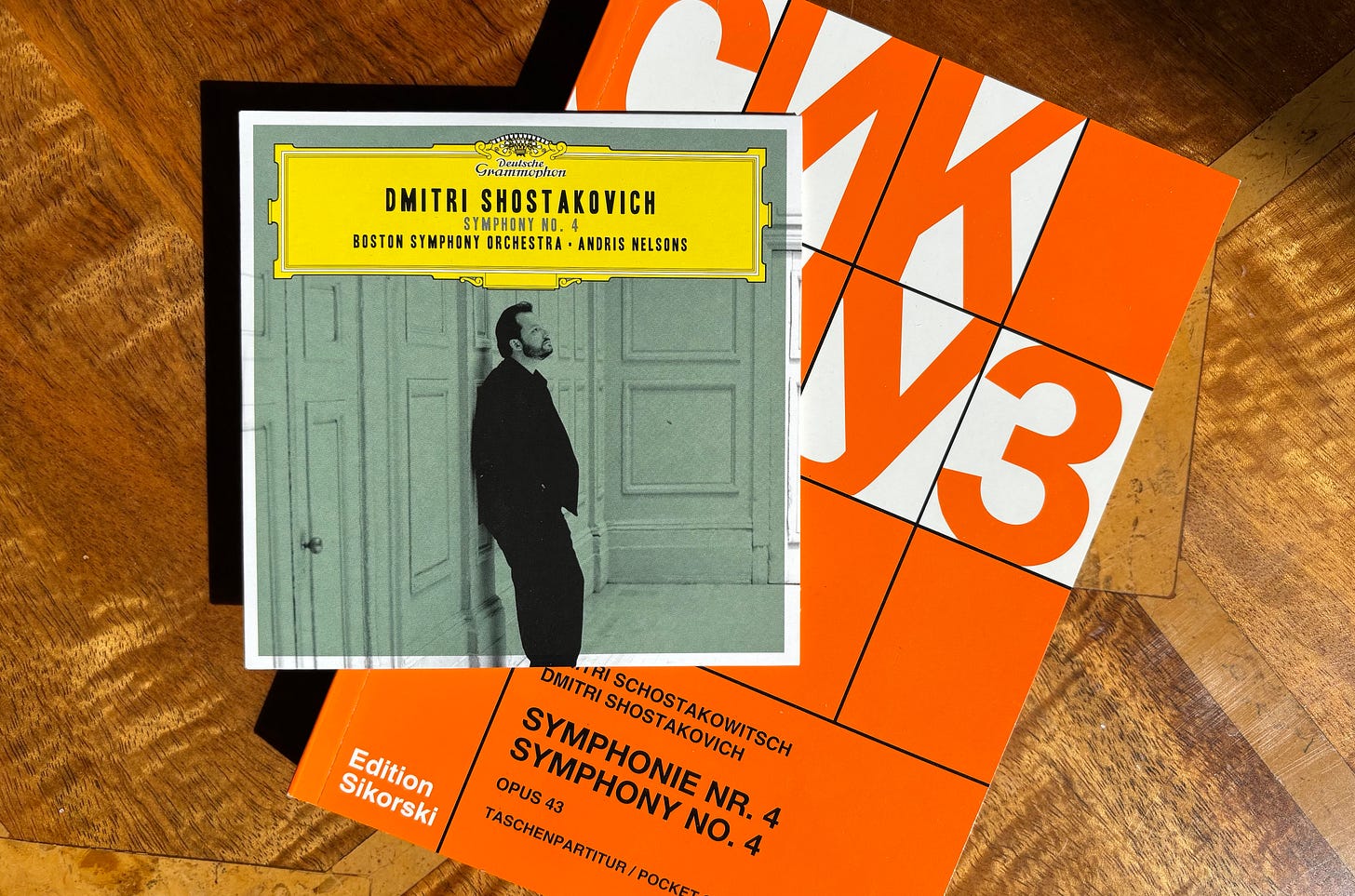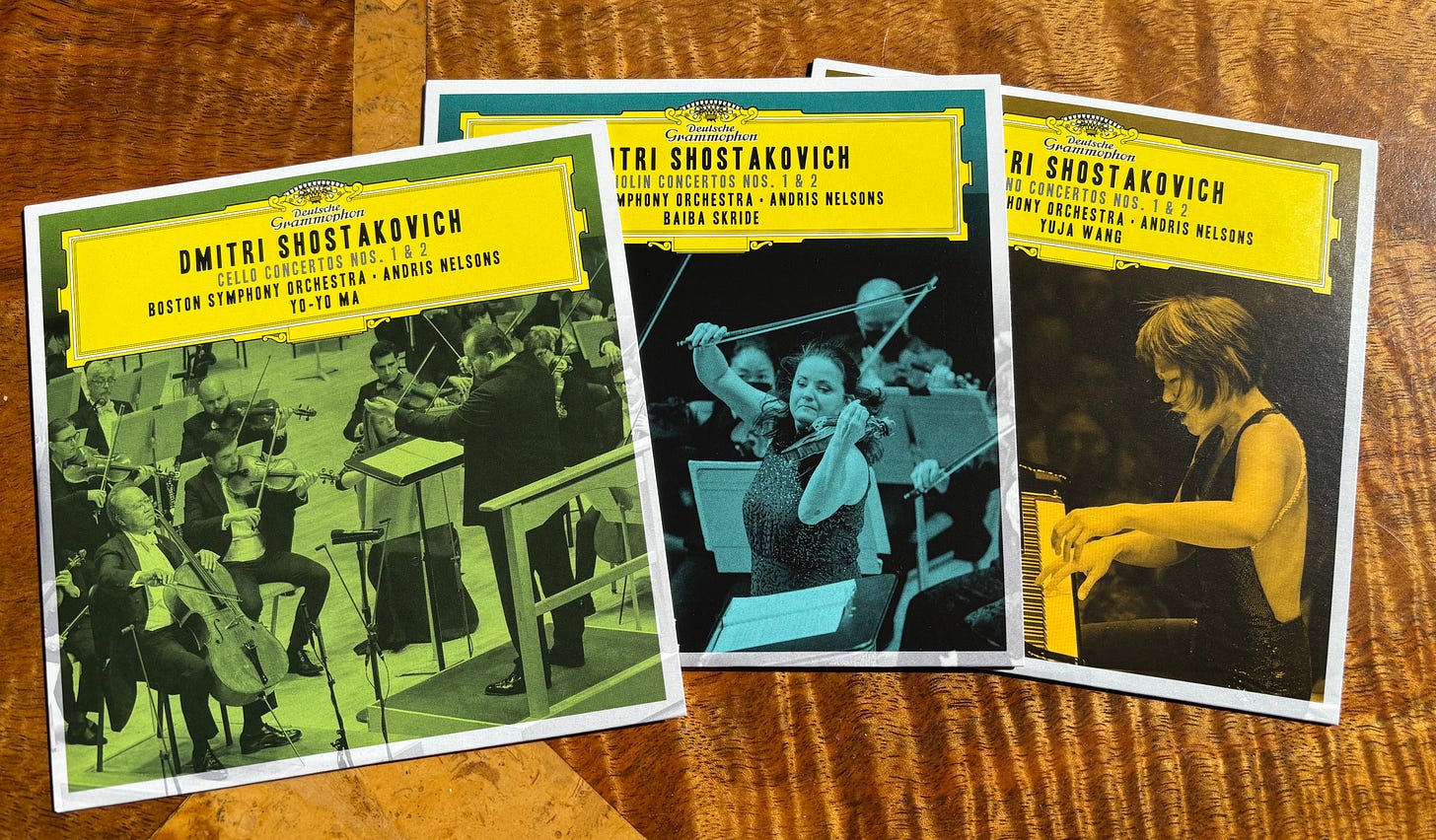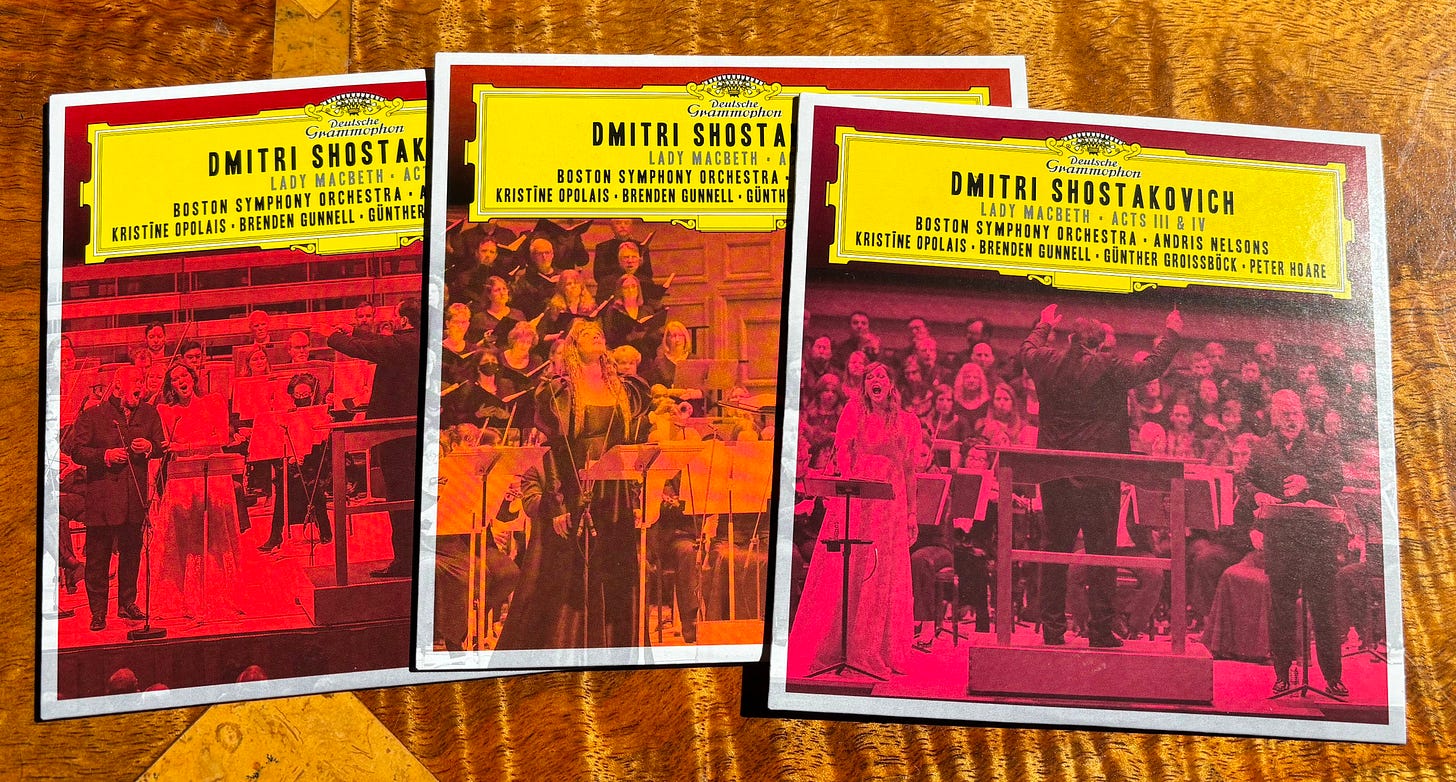Beyond Stalin’s Shadow: Andris Nelsons’ bumper Boston box of Shostakovich
“Over-politicising his symphonies… well, that is not the only way of describing his work.”
“Shostakovich’s music is, of course, connected to everything that was happening around him – Stalin, Hitler, all these disastrous things,” Andris Nelsons told Philip Clark in a Gramophone interview (8/15) launching his Shostakovich series on Deutsche Grammophon. “Over-politicising his symphonies… well, that is not the only way of describing his work.”
And Nelsons’ Shostakovich symphony cycle with the Boston Symphony isn’t overtly political in flavour, despite starting out under the provocative banner ‘Shostakovich Under Stalin’s Shadow’. Nelsons eschews frenzied excess for more sober, introspective readings, focusing on the works’ musical qualities at broader tempi in a way that frequently reminds me of the Shostakovich recordings of his late Latvian compatriot, Mariss Jansons.
It’s been something of an accidental cycle. Back in 2015, it was initially announced as a series encompassing Symphonies 5 to 10, recorded in concert. Perhaps encouraged by the enthusiastic critical response – the first release, the Tenth Symphony, won a Gramophone Award in 2016 – it grew into a full symphony cycle. DG has now added recordings of all six concertos plus Lady Macbeth of Mtsensk – the opera which sparked Stalin’s displeasure leading to its denunciation in Pravda as “muddle instead of music” – and packaged it up in a bumper box of 19 CDs just in time for the 50th anniversary of Shostakovich’s death.
That 50th anniversary is being marked by a mini-festival – ‘Decoding Shostakovich’ – in Boston this month, followed by a festival in Leipzig in May when Nelsons’ two orchestras – the Gewandhaus and the Boston Symphony – share a complete cycle between them. I’ll be hearing the Seventh, featuring the combined forces of both orchestras(!), as well as Lady Macbeth at Oper Leipzig, so was fascinated to delve into this DG box as prep.
The BSO doesn’t have a fabled history with Shostakovich. Their only recordings were live performances of the Fifth and Ninth under Serge Koussevitsky made in 1948 and 1946 (the US premiere) respectively. Nelsons’ performances of the Eleventh and the Chamber Symphony (Op.110a) were actually BSO firsts.
The recording of the Tenth was greeted with such rapture, I wonder if expectations weren’t set unfeasibly high. It’s a very good Tenth, scrupulously precise, faithful to every last hairpin dynamic and sforzando, but put the Allegro ‘portrait of Stalin’ second movement alongside Vasily Petrenko’s razor-sharp Royal Liverpool Philharmonic recording (Naxos) and you’ll hear the difference between musicians who are truly living the music as opposed to merely playing it. But the Boston playing is wonderful and the sound is plush and weighty. This is possibly the best engineered Shostakovich cycle out there.
Nelsons’ Tenth was originally coupled with a lowering Lady Macbeth Passacaglia which set up the symphony perfectly, especially as the two works bookend the ‘Stalin’s Shadow’ theme. Here, the 15 symphonies are presented in numerical order on 12 discs, shorn of couplings which are now lumped together on Disc 13. By the way, the vociferous applause that greeted the closing bars of the Tenth and Fifth Symphonies have been shorn in this release.
Nelsons’ Fifth is very good, especially the beautiful playing in the Largo, plus a rip-snorting finale. It was originally released with the Ninth – sprightly, with a dazzling closing Presto – and an Eighth which is sombre and tender, but where Nelsons doesn’t really venture into its darkest depths. The third release featured the Sixth, its long slow Largo suitably expansive before the circus high jinx of its two successors, and a Leningrad which feels just too beautiful, too sanitised. Does the war machine in the first movement threaten to obliterate everything in its path? Not really. Nelsons, as often elsewhere in this cycle, is at his best in the slow movement, the Adagio here – very slow at 20’33” – incredibly beautiful, its quality of stillness quite remarkable.
After those initial releases, they expanded their horizons towards the earlier and later symphonies. The Fourth is the best of the cycle, from its deadly, venomous opening to its desolate coda. Nelsons captures the eeriness of this most Mahlerian of symphonies and the playing is terrific, the fugato section in the first movement exciting as heck. If only they had sustained that level of performance across the whole cycle…
Of the early symphonies, the First is unusually weighty and serious, less Shostakovich the prankster than usual, while the Second and Third are given dutiful, let’s-complete-this-cycle readings, low on vigour.
The late symphonies are variable. The icy Eleventh – “a film score without a film” – is atmospheric, without matching Petrenko’s electrifying account. The Twelfth is taken really slowly, but does Nelsons’ lethargic tempo heighten the bombast in this pretty empty piece? It possibly makes it sound even more shallow. Babi Yar (No.13) is good, Matthias Goerne surprising with his depth of tone, even if he’s not as baleful as true basses in this harrowing work. The song cycle Fourteenth, my blind spot, is suitably weird, with bass Alexander Tsymbalyuk in biting form. Soprano Kristine Opolais is stretched at times, but whitens her tone well in Apollinaire’s The Suicide. The Fifteenth comes off very well, a reading of great clarity, wonderfully played – listen to the woodwinds at the start of the Allegretto. It’s a haunting, spectral performance, Nelsons revelling in the swan song’s enigmatic nature.
All in all, this Boston cycle is very fine, the hits outnumbering the misses, but not quite in the same league as the RLPO and Petrenko or other distinguished recent cycles such as the underrated Michael Sanderling and the Dresdner Philharmonie (Sony).
But this cycle has now been bolstered with the six concertos and Lady Macbeth, all new to the catalogue. The piano concertos (with Yuja Wang) and the cello concertos (Yo-Yo Ma) are being released separately on CD; for now the violin concertos (Baiba Skride) and the opera are download only unless you invest in this complete box.
Yuja Wang brings a tremendous sense of wit and sparkle to the piano concertos, aided and abetted by the incisive Thomas Rolfs (trumpet) in the First; their Keystone Cops finale is enormous fun. Wang finds just the right insouciance for the jaunty outer movements of the Second, framing a tender Andante. The disc is short measure at just 41 minutes, but the individual physical release will add some solo Shostakovich preludes and fugues not included here.
In contrast, both violin concertos are crammed onto a single disc. Baiba Skride’s playing is polished, her reading of the First much slower than her earlier recording (with Mikko Franck) apart from the Burlesque finale, which rollocks along here. Yo-Yo Ma is also more expansive in the First Cello Concerto than his earlier recording (with Eugene Ormandy, so 40 years earlier!) but the playing has an earthy attack that gets to the heart of the concerto. This is Ma’s first recording of the trickier-to-bring-off Second and he plays it admirably.
The most recent recording in this set is Lady Macbeth of the Mtsensk District, recorded in concert in January 2024. Listeners not familiar with this lustful, satirical thriller are screwed – DG doesn’t supply texts, translations or even a synopsis. The performance is led by Kristine Opolais giving her all as an intense Katerina Izmailova, aided by bright-toned Brenden Gunnell as her insolent bit-of-rough, Sergey. Bass Günther Groissböck is a sleazy Boris, an animated Peter Hoare as his son, Zinovy, Katerina’s husband. But Nelsons is in no hurry. He takes 2 hours 55 minutes over the score – 20 minutes slower than Myung-whun Chung with Maria Ewing (DG), 25 minutes slower than the classic Mstislav Rostropovich with Galina Vishnevskaya (EMI), the latter wonderfully lurid. It’s as if Nelsons prefers the slow turn of the screw to Rostropovich’s cruder – and frankly more exciting – hammer blows. If Stalin had heard Nelsons’ account, perhaps he’d have let Shostakovich off the hook.
Shostakovich: Symphonies, Concertos, Lady Macbeth, Boston Symphony Orchestra / Andris Nelsons (19 CDs, DG 4866649)
© Mark Pullinger 2025







